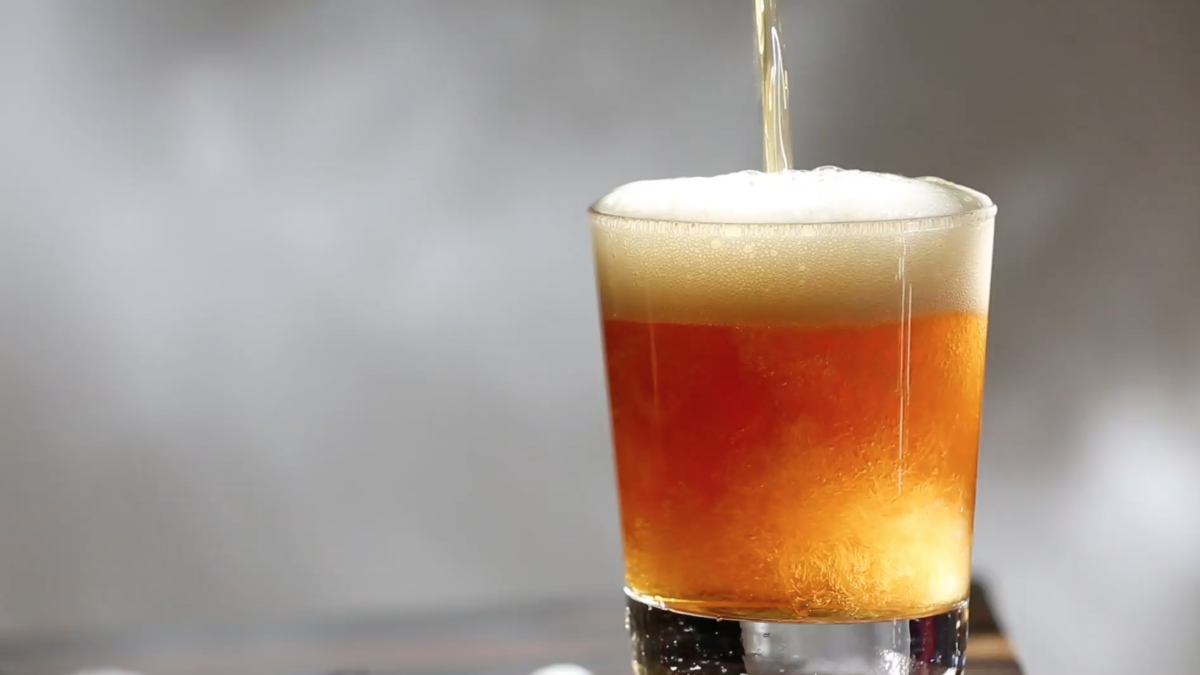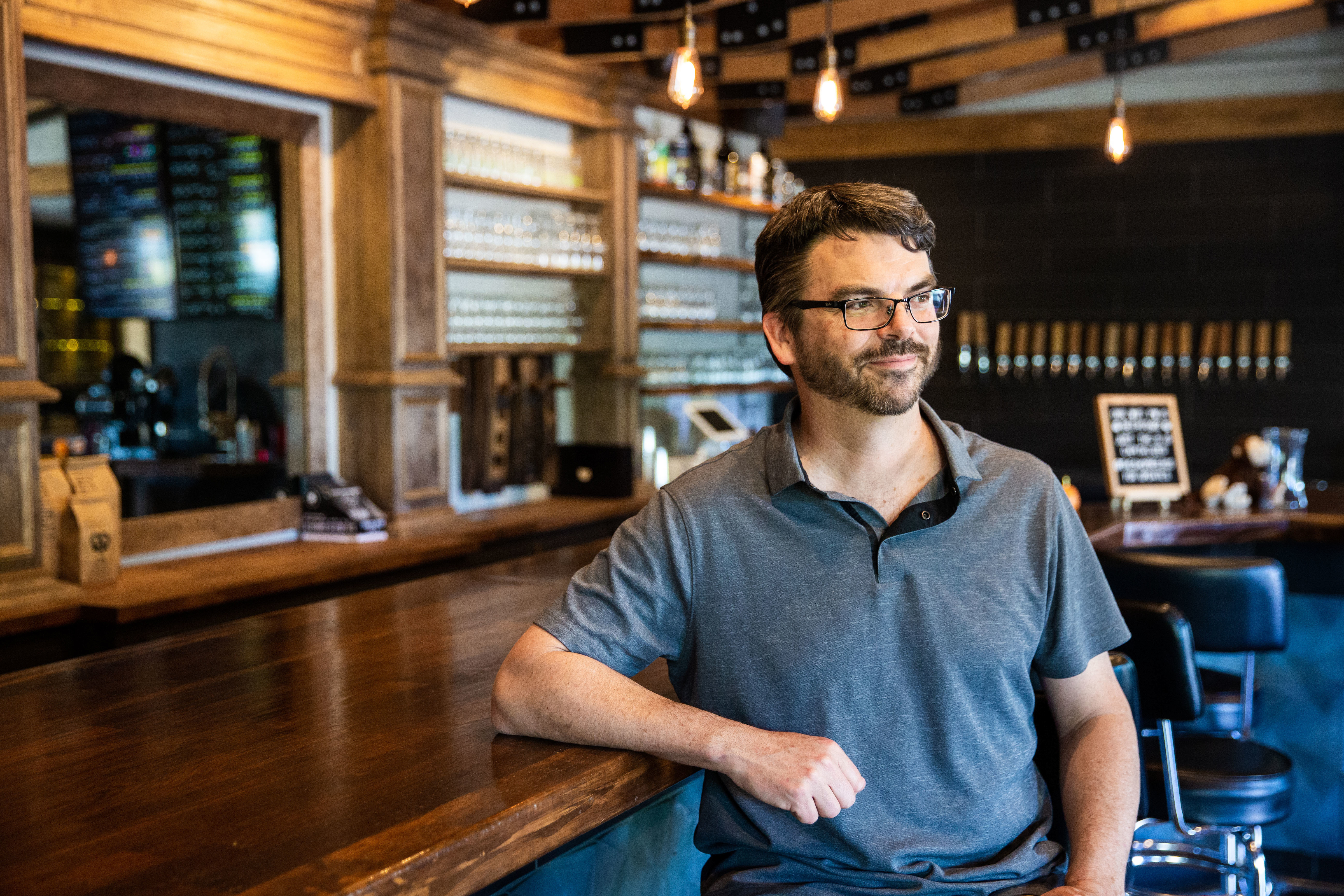“Oh, I’d be interested in a course like that!”
That’s the kind of reaction that Arizona State University Lecturer Stephen Davis said he invariably gets when he talks with students — or practically anyone — about the senior seminar he co-teaches on the cultural and chemical history of beer (BIS 402) in the College of Integrative Sciences and Arts.
“In the course, I use beer as a lens to integrate anthropology, history, cultural geography and mythology,” explained Davis, a member of the faculty of Leadership and Interdisciplinary Studies. “If you look at beer and all its different facets and trace it through the ages, it touches on almost every aspect of human life.”
On Nov. 8, he’ll be giving the public a glimpse into that course as he shares his encyclopedic knowledge of and perspectives on ancient beer-making, traditional beer-making and the links between beer and religion, gods, goddesses and the spirit world in the final session of the fall 2018 Humanities Lecture Series at ASU’s Downtown Phoenix campus.
In advance of his lecture, ASU Now met up with Davis to get a preview of his talk — and a bit of a history lesson.
True or false …
- The ancient Code of Hammurabi, which outlines laws developed in Babylon between 1792–1750 BCE, mentions beer.
- The Vikings carried beer on their ships (and may have brewed it en route) as they were finding their way across the oceans.
- Traditional beers around the world have been made from a range of starches, including maize, rice, barley, rye, oats, sorghum, millet, manioc root and quinoa.
- Ninkasi, the goddess of beer in ancient Mesopotamia, has an entire hymn dedicated to her.
- In ancient Egypt, the god Osiris was linked with brewing beer.
- The Egyptian goddess Sekmet, according to myth, became enraged and was going to wipe out all of humanity, but humans had enough beer that they were able to appease her.
Answers? They're all true.
Video by Deanna Dent/ASU Now
The connections between women, religion and beer
Beer, according to a recent Gallup poll, is the most popular alcoholic beverage in the U.S. and is preferred more by men than women.
In some cultures men make the beer, but in many more cultures it is women, Davis observed, and in many traditions Earth goddesses and fertility goddesses are connected to beer.
“Women and beer making," he said, “are among the oldest traditions documented in societies, and I’ll be sharing some examples from history and from the present.
“It’s possible that women making the first gruel, perhaps the first bread, stumbled across the making of the first beer,” said Davis. “If you accidently leave your bread in water and walk away for a week or two, you might have beer as a result.”
Most people today also don’t necessarily associate religion with beer.
“But beer is mentioned at various points in the Hebrew Bible and in the Quran — before the Quran mentions that no alcohol is permitted whatsoever,” Davis noted. “During the expansion of Christianity across Europe, various kings claimed to have visions that beer should be, or could be, used for Christian rites instead of wine. And beer-making was linked strongly with monks and nuns throughout the Middle Ages,” he added. “Trappist monasteries today are renowned for their beer.”
St. Hildegard of Bingen in 1079 first wrote about the preservative qualities of hops. Hops, Davis said, were not in the earliest beer recipes; rather, plants like rosemary, pepper, pine, yarrow, bog myrtle, tobacco and honey were used to flavor beers.
“The women who were involved in growing these spices were often also involved in making traditional medicines," Davis said. "And, as we know, in some societies (they were) vilified for being involved in witchcraft.”
The mysteries of fermentation, he said, were partly to blame.
“It’s only in recent history that we’ve had an understanding of the microscopic world and have seen yeast under microscopes," he said. "For the vast majority of the ancient world, they knew about the process, they knew what they had to do to process the grains to make beer, but when it came to actually fermenting those grains and achieving the kind of spiritual or magic result, it was the spirit world they relied on. Today we see remnants of that history in our use of the word spirits to describe hard liquor.”
Lecturer Stephen Davis poses for a portrait Oct. 30 in local Tempe brewery Shop Beer Co. as he talks about his upcoming lecture focusing on beer and the spirit world. Photo by Deanna Dent/ASU Now
A scholar with wide-ranging interests, expertise
Davis, in addition to his role as lecturer in ASU’s College of Integrative Sciences and Arts, is a faculty affiliate in Barrett, The Honors College and in the Center for the Study of Race and Democracy. His scholarship has focused on organizational leadership, faith-based leadership, immigration, social movements and the history of cartography.
Before joining ASU, Davis served in the editorial division of Encyclopaedia Britannica, first as a researcher and writer, then as associate editor of world geography as well as Latin American history and culture. He has brought this range of knowledge and experiences to bear as volunteer Academic Bowl coach for the College of Integrative Sciences and Arts student teams since 2015, and he has recently led ASU Study Abroad experiences in Ireland and Peru.
Davis earned a doctorate in anthropology at the University of Illinois-Chicago, as well as two master’s degrees — in urban and environmental geography and in anthropology. He completed a bachelor’s degree in English and Latin American Studies at Augustana College.
‘Goddesses, Beer and the Bible’
What: Final session of the fall 2018 Humanities Lecture Series of the College of Integrative Sciences and Arts.
When: 6:30 p.m. Thursday, Nov. 8.
Where: Cronkite School, room 128, ASU Downtown Phoenix campus.
Details: Free and open to the public. Davis may or may not sing a few lines of the Mesopotamian hymn to Ninkasi.
More Arts, humanities and education

ASU graduate education programs are again ranked among best
Arizona State University’s Mary Lou Fulton College for Teaching and Learning Innovation continues to be one of the best graduate colleges of education in the United States, according to the…
ASU FIDM students to see their designs on the runway at Uncertainty Fashion Showcase
Nola Hill is perfecting every stitch of her fashion design collection, which she started conceptualizing last summer.She is among 30 ASU FIDM fashion design students who have been working late into…

ASU+GSV Summit brings experts together to discuss innovation in education
This week, Arizona State University President Michael Crow and other university leadership joined education and learning experts from around the globe at the ASU+GSV education technology summit in…



